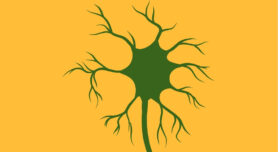USE Denemarken
| HO |

gesitueerd bij de Deense universiteiten (met Kopenhagen als penvoerder), en
met internationale samenwerking (o.a. Utrecht University, Stockholm University, University of Colorado at Boulder)
The USE Center is established in 2025, with an overarching vision – To create an international stronghold for university science education research and development.
The mission of the center is to strengthen science education at Danish universities. Partly by enhancing the excellence and capacity of discipline-based science education research, and partly by enhancing quality of curriculum, competences of teaching faculty, and learning of students.
When the mission is completed, international science education researchers, teaching faculty in science programmes, and their management will look to Denmark and know that there is a vibrant front-line environment for both research and development of university science education. More than 2.000 teachers and the 15.000 students at science programmes in Denmark will receive long-term benefit from dynamic science-teaching ecosystem in Denmark, characterized by innovative teaching practices, a strong sense of scholarly community around teaching, and a tangible shift towards research-informed teaching strategies.
In the research plan, there are five projects. Each project “lives” at a Danish partner university, but with research collaborations across the partners.
Transforming University Science Education in the New Media Era
This project examines how emerging technologies such as AI, generative writing tools, and XR reshape science education at the university level. Across four work packages, it investigates AI-supported creative problem solving in physics and chemistry, threshold concepts in biology and physics, disciplinary writing in the AI era, and immersive XR learning environments. The project aims to generate empirically grounded designs and theoretical insights into how new media can foster disciplinary engagement, epistemic agency, and long-term learning.
Appreciating Abstractions
This project explores how students develop disciplinary understanding and identity through engagement with abstractions, modelling, and hands-on practice. One work package investigates the aesthetic and cognitive dimensions of abstraction and modelling in computer science and biology. Another examines how laboratory and fieldwork practices in biology and chemistry can be redesigned to foster curiosity, agency, and identity. Together the project develops new environments and teaching designs that integrate abstract and embodied practices.
Transition and Alignment in First-Year University Courses
This project investigates how alignment across lectures, TA sessions, and assessment practices can improve the first-year experience in mathematics and physics. It investigates pedagogical designs that integrate AI-supported tools to strengthen coherence and engagement and explores how feedback and assessment can be reimagined as more relational and dialogic. The project aims to support smoother transitions into university study and improve retention in high-failure-rate courses.
Toolbox Courses in Data Science
This project addresses the didactical challenges of toolbox courses in data science, which serve students from multiple programmes with diverse needs. One work package maps programme-specific curricular needs and identifies gaps in current teaching. The second develops and tests new didactical designs that connect toolbox courses more closely to disciplinary applications. The project builds capacity in data science didactics in Denmark and creates internationally informed design packages adaptable to other courses.
Science Educator Identity and Practice in Physics and Biology
This project studies how science educator identity shapes teaching practices and how professional development can promote sustainable adoption of active learning. Work packages explore educator identity and departmental networks, design professional development formats, and follow up with classroom observations to track how identity changes translate into practice. The project provides a framework for educator identity and comparative data on active learning in Danish universities.


